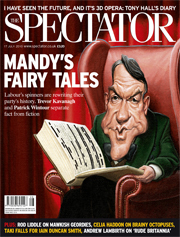VAL 2015 | För en månad sedan publicerades en översiktsplan över vem som sitter var i Ed Milibands stridsledningscentral. Härifrån dirigerar Labour sin valkampanj.
Strategerna i partiet tror att man är överlägsna Conservative Party när det gäller att knacka dörr och träffa väljare öga mot öga.
Patrick Wintour, political editor på tidningen The Guardian som också publicerade översiktsbilden, skrev om partiets strategi som skall besegra de konservativa.
The fate of the party may lie in this open-plan room. Such war rooms, made famous by the US Democrats in the 1990s, are essentially about information mobility. They have been described as “catalysts for decision-making”.
The aim is to get information to the people who need it in real time and by having the decision-makers all in one place to make sure the strategic decisions turn into reality in both the campaign “ground war” and “air war”. That is more than a battle for the hourly news cycle, but what is happening on doorsteps and on social media such as Facebook.
[…]
In terms of a traditional air war – a hostile media environment in which Labour can probably hope at best to scrape a draw – Labour strategists believe they have been competitive. One official said: “Any party has to bury its negatives and accentuate its positives. The Conservatives have done the opposite.”
[…]
Labour hopes its strength lies with its ground war. Miliband himself this week described the Conservative party as a “virtual party. It is a Lynton Crosby hologram” [referring to the party’s election campaign chief].
Labour reckons it has a competitive advantage in its activist base and is well on course to deliver on its target to hold 4m doorstep conversations. By this weekend it will have reached 2.5m, and its field team reckons in marginal seats it was getting out more material than the Tories.
Some independent evidence to confirm this advantage exists. As ConservativeHome, a Conservative website, pointed out this week, Ashcroft polling showed in 10 key marginals that Labour, according to voter recall, was now leading the Tories in contacts with voters. The average increase in the share of voters contacted by Tory campaigns in the 10 key seats is 35 percentage points, while the same figure for Labour campaigns is almost 55 percentage points.
Bild: The Guardian.

